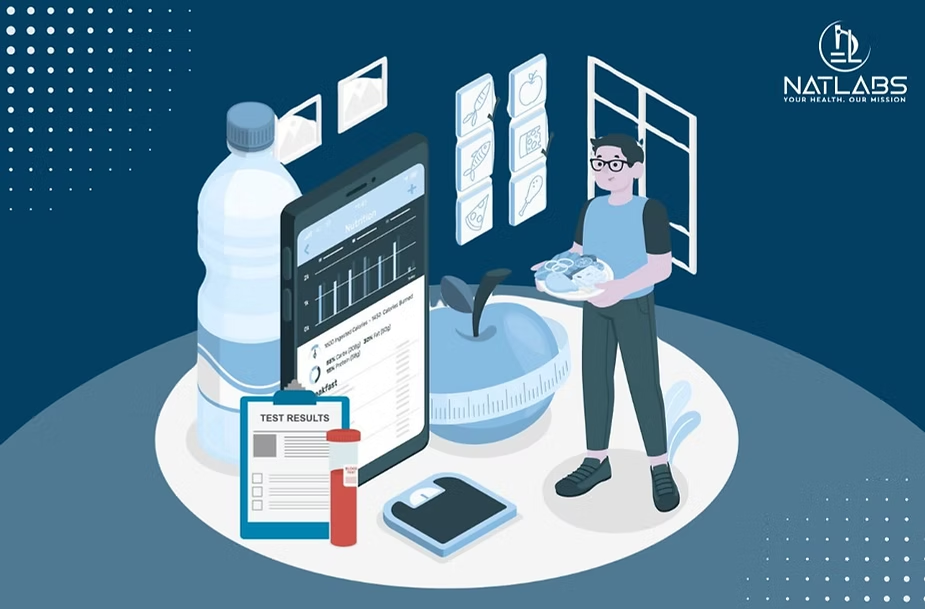
India’s healthcare landscape in rapidly evolving, and diagnostic tests have become more accessible than ever before. Yet, despite their importance in maintaining good health, numerous myths and misconceptions continue to circulate, often spread through well-meaning family advice or shared in neighbourhood WhatsApp groups. These misunderstandings can lead to unnecessary anxiety, delayed testing, or even complete avoidance of important health screenings. Let’s separate fact from fiction and debunk the most common myths about diagnostic tests.
Myth 1: Diagnostic Tests Are Always 100% Accurate
The Reality: No diagnostic test is perfect, and expecting absolute accuracy sets unrealistic expectations. Whilst modern laboratory techniques are remarkably precise, false positives and false negatives can occur due to various factors including sample quality, timing of collection, individual biological variations, or occasionally, laboratory errors.
For Indian patients, this is particularly important to understand. Factors like recent travel, dietary changes (such as fasting during festivals), or even the stress of navigating traffic to reach a diagnostic centre can sometimes affect certain test results. This is why healthcare professionals always interpret results within the context of your symptoms, medical history, and other clinical findings rather than relying solely on numbers.
Myth 2: You Only Need Tests When You’re Feeling Unwell
The Reality: This misconception is particularly prevalent in Indian households, where the attitude often is “if it’s not broken, don’t fix it.” However, preventive screenings can detect serious conditions like diabetes, hypertension, or early-stage cancers long before symptoms appear.
Consider this: India has over 77 million diabetics, yet many don’t know they have the condition until complications arise. Regular screening could catch prediabetes early, when simple lifestyle changes can prevent or delay the disease’s progression. Similarly, conditions like high cholesterol or thyroid disorders often develop silently but can be managed effectively when detected early.
Myth 3: All Blood Tests Require Fasting
The Reality: This myth causes unnecessary confusion and often leads to postponed testing. Whilst some tests like fasting glucose or lipid profiles do require 8-12 hours of fasting, many common tests don’t require any special preparation.
Complete blood counts (CBC), thyroid function tests, kidney function assessments, and most vitamin level tests can be done at any time. Always check with your healthcare provider or diagnostic centre about specific requirements. Many Indian labs now clearly specify fasting requirements when scheduling appointments, making preparation much simpler.
Myth 4: Laboratory Tests Are Always Expensive
The Reality: The cost of diagnostic testing has become much more affordable in recent years, particularly in India’s competitive healthcare market. Basic tests like blood sugar, cholesterol, or complete blood counts often cost less than a family dinner at a restaurant.
Moreover, comprehensive health packages that bundle multiple tests together offer excellent value for money. When you consider that early detection through routine testing can prevent expensive treatments for advanced diseases—a heart bypass surgery costs lakhs of rupees, whilst regular cholesterol monitoring costs hundreds—preventive testing actually saves money in the long run.
Myth 5: Diagnostic Tests Are Painful and Uncomfortable
The Reality: Most people’s fear of testing stems from outdated perceptions or childhood memories of medical procedures. Modern diagnostic techniques have evolved tremendously, with comfort being a priority.
Blood draws involve a brief needle prick that most people tolerate easily. Imaging tests like X-rays, ultrasounds, and MRIs are completely painless. Even procedures that were once uncomfortable, like endoscopies, now use advanced techniques and sedation when necessary to minimise discomfort. The momentary inconvenience is insignificant compared to the valuable health information gained.
Myth 6: Abnormal Results Always Signal Serious Illness
The Reality: This myth causes perhaps the most unnecessary anxiety among Indian patients. An abnormal result doesn’t automatically mean you have a serious disease. Many factors can cause temporary variations in test results.
For instance, slightly elevated liver enzymes might simply indicate recent consumption of paracetamol or even certain herbal remedies. Low haemoglobin in a vegetarian woman might be easily corrected with dietary changes and iron supplements. Your doctor considers trends over time, your symptoms, and multiple test results before reaching any conclusions.
Myth 7: Radiation from Imaging Tests Is Dangerous
The Reality: Modern imaging equipment uses carefully calibrated, minimal radiation doses that are well within safe limits. The radiation exposure from a chest X-ray is comparable to what you’d receive from natural background radiation over a few days.
Additionally, many imaging techniques use no radiation at all—ultrasounds use sound waves, whilst MRIs use magnetic fields. The medical benefits of accurate diagnosis far outweigh the minimal risks from properly conducted imaging studies.
Myth 8: Home Testing Kits Are Just as Good as Laboratory Tests
The Reality: Whilst home testing kits offer convenience and privacy, they typically lack the precision, standardisation, and quality control of professional laboratory testing. Home pregnancy tests or blood glucose monitors are useful for routine monitoring, but complex health assessments require sophisticated laboratory analysis.
For critical health decisions—like diagnosing diabetes, assessing heart disease risk, or screening for infections—professional laboratory testing with expert interpretation provides the accuracy and reliability you need.
Myth 9: No Family History Means No Risk
The Reality: This is a particularly dangerous misconception in the Indian context, where genetic diversity and changing lifestyles create complex health risks. Whilst family history is important, lifestyle factors, environmental exposures, and age-related changes can affect anyone.
Urban air pollution, changing dietary patterns, increased stress levels, and sedentary lifestyles put many Indians at risk for conditions regardless of family history. Regular screening helps identify emerging risks before they become serious problems.
Myth 10: Tests Always Lead to Unnecessary Treatments
The Reality: Many people avoid testing because they fear being prescribed expensive medications or invasive treatments. In reality, most diagnostic tests guide conservative management approaches.
Early detection often means that simple lifestyle modifications—dietary changes, exercise, stress management—can effectively manage or prevent disease progression. When medication is necessary, early intervention typically requires lower doses and less aggressive treatments than waiting until symptoms appear.
The Truth About Modern Diagnostics
Understanding these facts helps you make informed decisions about your health:
- Tests provide information, not automatic treatments
- Early detection usually means simpler, more effective interventions
- Modern testing is more comfortable, accurate, and affordable than ever
- Professional interpretation considers your complete health picture
- Regular screening benefits everyone, regardless of current health status
Making Informed Health Decisions
Don’t let myths and misconceptions stand between you and better health. When questions arise about diagnostic testing, consult healthcare professionals who can provide accurate, personalised information based on your specific situation.
Remember that in today’s information-rich world, not all health advice shared among friends and family—or found online—is accurate. Reliable diagnostic testing, interpreted by qualified professionals, provides the evidence-based foundation for all good healthcare decisions.
Your health deserves facts, not fiction. By understanding the reality behind common myths, you can approach diagnostic testing with confidence, knowing that these tools are designed to help you maintain and improve your wellbeing. Leading diagnostic providers like NATLABS are committed to combining advanced technology with clear communication, helping patients understand not just their test results, but also the testing process itself, ensuring that accurate information replaces unfounded fears and misconceptions.
Questions about diagnostic testing? Get reliable answers from qualified professionals.
NATLABS: +918010000960 | natlabshealthcare.com


